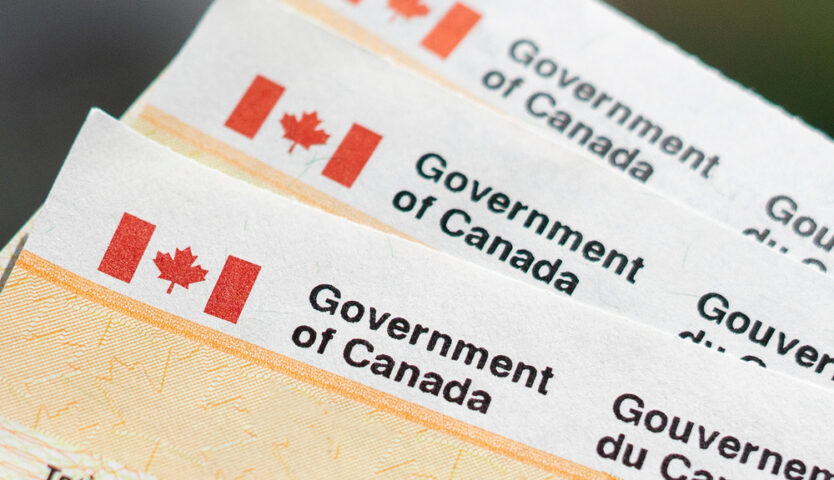2020 proved to be an interesting and evolving time as more and more employees worked from home.
When you are no longer working in your company’s workspace, the way in which your file your taxes changes drastically.
If you worked from home during 2020, you may be eligible to make work-related claims and take advantage of additional deductibles on your taxes.
To understand whether you are eligible to claim your home offices expenses, and what you can claim on your 2020 taxes, keep reading our tax guide to your first year working from home:
Who Can Claim Home Office Expenses?
Employees who worked from home more than 50% of the time over a period of at least four consecutive weeks due to COVID-19 can claim home office expenses.
This applies to 2020 only.
Instead of tracking expenses and having your employer certify your requirement to work from home, the CRA has simplified this method by offering a temporary flat rate of $2 per day for each day at home – to a maximum of $400.
This eliminates the need for an employer to sign the T2200 or T2200S slips.
To calculate your workdays, you must use the days that you worked full-time or part-time, not vacation days, sick days or other days off.
But if your employer has reimbursed you for all your home office expenses, you cannot claim these on your taxes.
What Expenses Can Be Claimed?
If you are eligible to claim expenses for working from home, what you can claim depends on the type of income you earn.
The type of work is divided into three categories: Employment, Commission and Self-Employment.
This table will help you understand what you are eligible to claim:
| Employment | Commission | Self-Employed | |
| Heat | ✔ | ✔ | ✔ |
| Electricity | ✔ | ✔ | ✔ |
| Phone | ✖ | ✔ | ✔ |
| Internet | ✔ | ✔ | ✔ |
| Rent | ✔ | ✔ | ✔ |
| Repairs/Maintenance | ✔ | ✔ | ✔ |
| Mortgage Interest | ✖ | ✖ | ✔ |
| Property Tax | ✖ | ✔ | ✔ |
| Insurance | ✖ | ✔ | ✔ |
| Capital Cost Allowance | ✖ | ✖ | ✔ |
| Water, Security, Etc. | ✔ | ✔ | ✔ |
For more information on what is considered capital cost allowance, and what repairs and maintenance, are eligible for deductions, get in touch with our expert accountants today!
How to Calculate Your Home Office Portion of Expenses
Once you know what you are eligible to claim while working from home, you need to figure out what percentage of these costs relate to your home office – you cannot claim the entire amount.
This is done by considering the percentage of time you use your home office space for work as well as the proportion of your home used for the workspace.
The CRA determines this on a “reasonable basis”, meaning that they take the square footage of your home office and divide it by the total square footage of your home.
If you use a common space, such as a kitchen or dining area, you can claim your home office based on the number of hours your space is used for work.
Because many people worked both from home and at work, these situations may require you to prorate your expenses based on the number of months out of twelve in which you worked from home.
Other Deductible Expenses
When claiming your home office space on your 2020 taxes, don’t forget that you can also include other deductible expenses such as supplies that are necessary for doing your job.
These supplies can include pens, pencils, file folders and ink cartridges, for example.
Also, if you use your personal phone to make business calls, you can also claim long-distance charges and minutes used on your cell phone (if these incur additional charges on your bill).
However, this doesn’t mean you can simply buy supplies just to save money on your taxes!
There has to be an understanding between you and your employer that you were required to purchase these items in order to fulfill your employment duties.
Employer Allowances and Reimbursements
Any allowances received for your home office expenses from your employer are considered to be a taxable employee benefit and should be included in your income on your T4 or T4A slips.
However, direct reimbursements made by your employer do not need to be included in your income – except in the case where there is a potential for personal use of the expense. The portion related to personal use is then included in your income as a taxable benefit.
For example, if your employer gives you the money to purchase a computer for work, that amount is considered to be taxable income.
(Except in the case of computers, the CRA has implemented a new exception that allows you to claim a $500 reimbursement if the equipment was purchased during the pandemic for work).
Alternatively, if your employer has you purchase a computer and then reimburses you for it afterward, this is not considered taxable income.
In the case of personal use, if your employer gives you a cell phone, but you are allowed to use it personally after hours, you would have to consider the time the phone is used personally and claim that percentage on your taxes.
Don’t Miss an Opportunity to Save on Your Taxes!
While we certainly don’t recommend you make claims on your 2020 taxes beyond what you are eligible for, there is definitely an opportunity to save on your taxes when you work from home.
To gain a more thorough understanding of the claims you can make on your taxes related to having a home office, we recommend speaking to a knowledgeable accountant.
Our team at Liu & Associates is more than happy to help you navigate your taxes after your first year of working from home.














